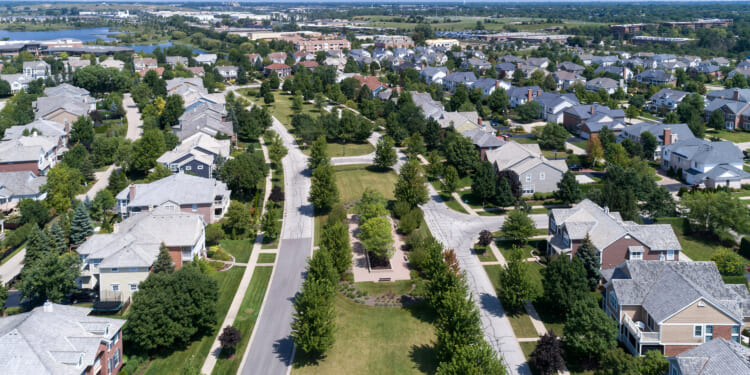Lawsuits are mounting from homeowners, investors and counties. Unless lawmakers act, taxpayers could pay millions in damages over Illinois’ unconstitutional tax sale system.
County governments, homeowners and investors in Illinois are bracing for a fight over the state’s failure to reform its unconstitutional property tax sale system.
More than two years after the U.S. Supreme Court ruled in Tyler v. Hennepin County that governments cannot keep more than what’s owed in back property taxes, Illinois remains the only state that hasn’t changed its laws to comply.
Now, lawsuits are piling up, and could cost taxpayers millions.
In Cook County, Treasurer Maria Pappas faces three federal lawsuits, including a class-action case involving more than 1,700 homeowners. Some of the tax buyers who would purchase these homes have even decided to sue the country treasurer because of the now “worthless” value of purchased tax certificates.
Eight other counties are also defending against a lawsuit brought by suburban homeowners claiming millions in lost equity. Several of those counties are turning around to sue the state of Illinois, arguing lawmakers’ inaction left them exposed to legal liability.
Under Illinois’ current system, counties sell unpaid property tax bills to private investors. If homeowners can’t repay the debt plus interest, the investor can take the deed to the home and keep the entire value of the property, not just the amount owed.
Illinois lawmakers have failed to reach an agreement on how to fix this system since the Supreme Court ruling. Instead, they passed a bill allowing for the delay of the tax sales that would have normally taken place in August. This delay didn’t shield counties from lawsuits already in motion.
The financial stakes are high. Researchers estimate investors in Illinois collected at least $148 million more than what was owed in unpaid property taxes between 2014 and 2021. If the courts order counties to compensate the homeowners, taxpayers could foot the bill for those damages.
That pressure is already prompting some county officials to call on the General Assembly to act quickly during the fall veto session. One proposal, Illinois House Bill 3146, would require that any surplus value from a property sale after taxes are paid go back to the original homeowner and would resolve the issue, aligning state law with the Fifth Amendment’s protections.
That adjustment may not be enough, however. Tyler v. Hennepin County continues to inspire new lawsuits in other states, such as one currently underway in Michigan. The Pacific Legal Foundation is urging the Supreme Court to require governments to return the fair market value of a property, minus any taxes owed, when a home is taken through tax foreclosure. Illinois lawmakers need to take action to avoid falling even further behind.










